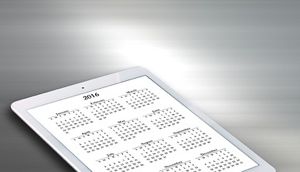If you’re a full-time writer—or even a part-time writer working at a desk for your day job—you know it’s true.
We’re at risk for weight gain.
It’s all that sitting. Plus we’re likely to eat the wrong things when we get hungry. We don’t want to leave our chairs, but we need fuel our brains, so we choose the stuff that gives us a quick energy surge, tastes good, and satisfies the need to crunch. Usually it’s chips, candy, cookies, and the like instead of veggies, nuts, and healthy dark chocolate.
Then we see a picture of ourselves. Or we realize our jeans aren’t fitting the way they used to, or we find that a short walk leaves us winded.
Whatever happens, it hits us in the face.
We’ve gained weight.
There are diets upon diets. Most of them don’t work. Even if they do, most people gain the weight back within five years.
Besides, who wants to go on a diet? We’re too busy for diets, right? And besides, who wants to give up carbs, or meat, or protein, or whatever it is the diet wants us to give up?
Fortunately, there’s something that does work, and it’s incredibly simple. So simple, in fact, that it’s the perfect remedy for busy, overwhelmed writers.
What is it?
Weight yourself. Every day.
And chart the results.
That’s it.
How does it work?
 Should We Weigh In Only On Wednesday?
Should We Weigh In Only On Wednesday?
There’s been some confusion out there about whether we should weigh ourselves, particularly about how often we should do it. A 2014 study, for example, suggested once a week—on Wednesday, no less!
Researchers found that Wednesday was the day when weight was least likely to fluctuate, and that Wednesday generally gave a more consistent reading of the person’s true weight—often because we tend to eat more on the weekends.
I tend to believe that for most of us, though, we need a more frequent reminder of what we’re trying to do than a once-a-week peek. It’s just too easy to succumb to temptation on Friday, Saturday, and Sunday, if we think we have until Wednesday to worry about the consequences.
Another 2014 study noted that to be the case—that the more frequently dieters weighed themselves, the more weight they lost. They also found that those who went more than a week without weighing themselves gained weight.
“The bottom line is: If you want to lose weight, it’s best to weigh yourself every day,” said Brian Wansink, PhD, Director of the Cornell Food and Brand Lab and author of Slim by Design: Mind Eating Solutions for Everyday Life.
A more recent study showed the power of daily weighing. Here’s why it’s the best solution for writers and others stuck behind a desk.
 Study Finds that Daily Weigh-Ins Work
Study Finds that Daily Weigh-Ins Work
Published in 2015, this study followed about 160 overweight participants, split into two groups: the first did nothing different for the first year, while the second used a weight-loss intervention called “Caloric Titration Method (CTM).” This is basically just a process of weighing yourself daily and recording the results on a chart.
In other words, you step on the scale, read the number, and plot that number on a graph, and you’re done.
This group was also told to lose one percent of their weight every two weeks. So if you weigh 150 pounds, for instance, your goal would be to lose about 1.5 pounds in two weeks— a reasonable goal.
The cool thing about this study was that the researchers didn’t put the participants on a diet. There wasn’t any particular nutrition plan those in the study had to follow, nor did they have to deprive themselves of this or that.
Instead, the researchers told them they could do whatever they thought would work to lose the weight. They did give them some examples to get them started, like cutting back on calories, skipping a meal, and exercising more.
Once the participants maintained their weight loss for 10 days, they received a new target—to lose another one percent. The overall goal was to lose 10 percent of their starting weight over a period of two years.
Results of this study were impressive. Not only did the participants lose the weight, they were able to keep it off.
- Frequent self-weighing and tracking results on a chart were effective weight-loss techniques for losing weight and keeping it off.
- Subjects who lost the weight the first year of the program were able to maintain that weight loss through the second year.
Why does this method work?
 We Become Motivated When We Can See Our Improvements
We Become Motivated When We Can See Our Improvements
The key to this method can be wrapped up in one word: feedback.
It’s too easy to rationalize when it comes to weight gain. “I’ll work on it tomorrow,” we think. Weight gain tends to come in small increments. A pound here. Another pound there. We don’t really notice the seriousness of what’s happening until we’re carrying around an extra 10 pounds or more.
Daily weigh-ins and charting the results gives us a way to see exactly what’s happening, right in front of us, in black and white (or colored pencil if you like). The daily aspect of it means that we can’t brush it off—we’re reminding ourselves every day that we are closer (or further) from our goals. When that line on the graph gradually goes up and up, it’s a lot harder to deny what’s happening.
You also get immediate feedback on what’s working and what’s not—for you. This is where the magic of this method comes to light for writers. We may not be able to stick with a particular diet, but if we skip our afternoon snack one day and see the results on the chart the next day, we know what works and we are more likely to stick with it.
We can also experiment from day to day, and find out what else may help us to shed the pounds without feeling deprived.
The method puts the power back into our hands, and allows flexibility when determining the weight-loss tricks that work for us.
“The old conventional wisdom was: ‘Don’t weigh yourself more once a week. It will drive you crazy,’ ” says Dori Steinberg, an obesity prevention and treatment researcher at the Duke Global Health Institute in Durham, N.C. “But now we are seeing more and more research showing that the optimal frequency for weighing oneself is likely every day.”
Get Started Today
Researchers recommend you treat your weigh-ins as part of your other daily hygiene activities, right up there with brushing your teeth. Add it to your daily routine. Tape your graph paper up in the bathroom, or keep track of it on your smartphone or computer, whatever works for you.
Some other tips:
- Same time: Weigh yourself at the same time every day for the most consistent results.
- Same scale: Use the same scale every time—switching scales may slightly alter your results.
- Put the scale in a strategic place: Don’t hide it—keep it right by your shower so you can step on as you step out, for instance.
- Make it easy: New Wi-Fi enabled scales can send your results to an app or website, saving you time.
Do you struggle with weight gain as a writer? Do you weigh yourself daily? Please share any tips you may have.
Sources
“Weigh Yourself on Wednesday to lose most weight, study finds,” The Telegraph, 2014, http://www.telegraph.co.uk/news/science/science-news/11300933/Weigh-yourself-on-Wednesday-to-lose-most-weight-study-finds.html.
Elina E Helander, et al., “Are Breaks in Daily Self-Weight Associated with Weight Gain?” PLoS One, November 14, 2014; 9(11): e113164, http://journals.plos.org/plosone/article?id=10.1371/journal.pone.0113164.
Carly R. Pacanowski, David A. Levitsky, “Frequent Self-Weighing and Visual Feedback for Weight Loss in Overweight Adults,” Journal of Obesity, 2015: 109, http://www.hindawi.com/journals/jobe/2015/763680/.
Kim Painter, “New advice for weight loss: get on the scale every day,” USA Today, January 3, 2016, http://www.usatoday.com/story/life/2016/01/03/weight-loss-scales-daily/77584478/.


It’s all about accountability. For years, my brother has weighed himself daily. For years, I’ve told him he was crazy. I wasn’t sure I could get out of bed every day if I knew that was what I had to look forward to. But I needed to lose weight. And along with some other strategies such as using an app to track calories and regular exercise, I committed to a daily weigh in. That was over a year ago, and I still do it. It’s not always pleasant, but the main advantage is that I can see immediately when there is an issue and nip it in the bud before it gets out of control. I lost a total of about 15 pounds last year, but recently 5 have crept back on. I worked hard to get that weight off, and I don’t want to go through that again. So even though I’m not happy about the 5, I’d rather deal with 5 now than with 15 later.
Great story, Lissa! It’s so true—if you catch it early it’s a lot easier to recover. I find that too. It’s so hard to lose weight—much easier to “nip it in the bud” as you say. Congrats on your weight loss—10 pounds net is still awesome and great for your health.